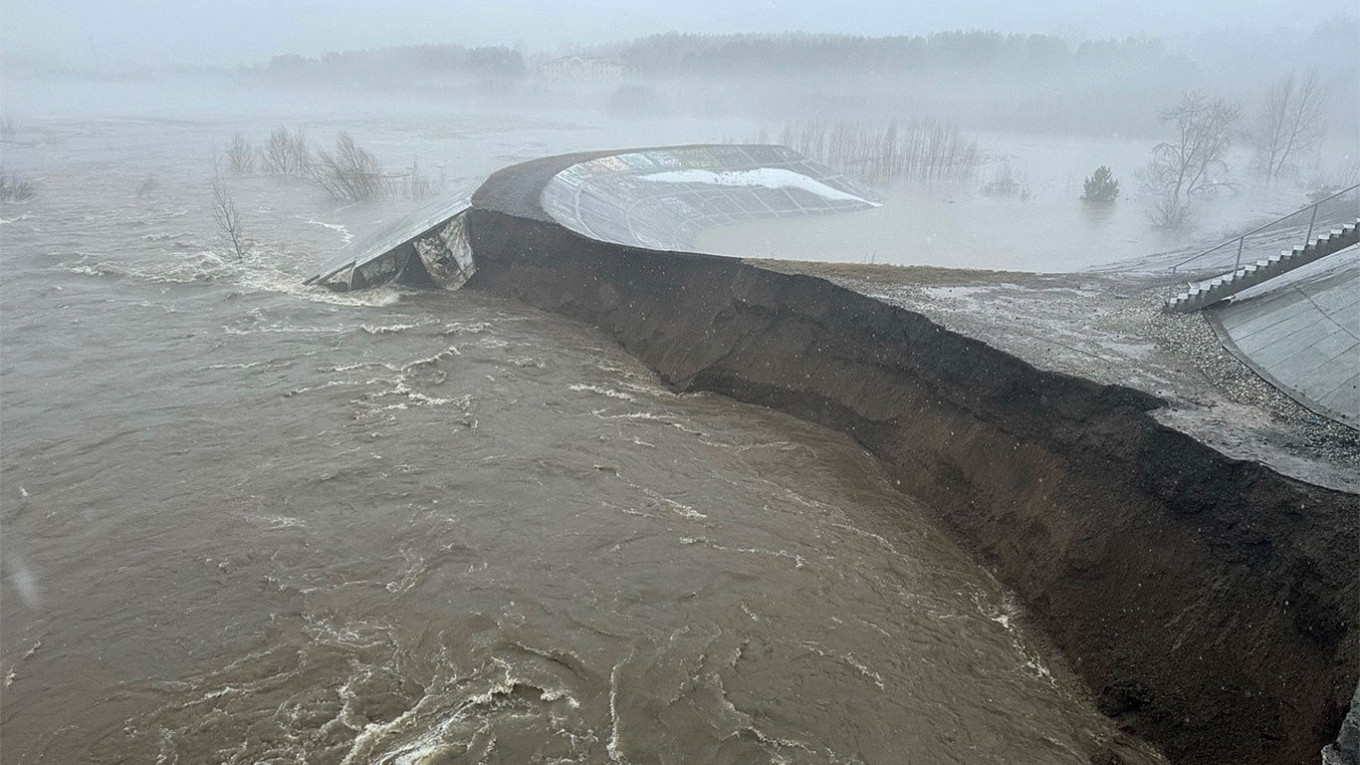The swelling Tom River in southwestern Siberia has led to a partial dam collapse in the city of Tomsk, authorities said Monday.
“The water has partially destroyed the protective dam,” Tomsk Mayor Dmitry Makhinya said in a video posted on social media that shows him surveying the damage.
Spring flooding caused by melting ice is a regular occurrence in some parts of Russia, but this year’s heavy rainfall, combined with abnormally warm spring weather, has led to severe flooding in Russia’s Urals and western Siberia.
So far, the floods have submerged around 15,600 homes and 28,000 land plots in 193 Russian towns and cities across 33 regions, state-run media reported on Monday. Almost 200 houses near Tomsk were under water as of Monday morning and 84 people were evacuated.
The Tom River, which stretches 827 kilometers, could reach a dangerous height of 8.9 meters between Monday and Wednesday, the Tomsk regional government said. Emergency officials have carried out ice blasting — a process by which explosives are used to break up ice — in the Tom River over the weekend to prevent flooding caused by ice jams.
Mayor Makhinya criticized Tomsk residents who were seen gathering at the city’s damaged embankment to watch the annual ice drift.
“Think about your safety, don’t go to the dam now, don’t hang down from the bridge parapet in pursuit of good shots,” he wrote on the Russian social network VKontakte. “Disaster is not entertainment!”
Meanwhile, almost 13,000 people have been evacuated from the Kurgan region near Kazakhstan in anticipation of flooding there, the governor’s office told the state-run news agency TASS on Monday.
Kurgan region Governor Vadim Shumkov said a “colossal” amount of water was headed toward the region’s capital city.
The Kremlin said emergency officials expect floodwater levels to increase in the Kurgan and the neighboring Tyumen regions by mid-week.
Russian Emergency Situations Minister Alexander Kurenkov on Monday arrived in the city of Orsk, the original epicenter of flooding in the Orenburg region, where water levels peaked over the weekend and are expected to recede early this week.
A Message from The Moscow Times:
Dear readers,
We are facing unprecedented challenges. Russia's Prosecutor General's Office has designated The Moscow Times as an "undesirable" organization, criminalizing our work and putting our staff at risk of prosecution. This follows our earlier unjust labeling as a "foreign agent."
These actions are direct attempts to silence independent journalism in Russia. The authorities claim our work "discredits the decisions of the Russian leadership." We see things differently: we strive to provide accurate, unbiased reporting on Russia.
We, the journalists of The Moscow Times, refuse to be silenced. But to continue our work, we need your help.
Your support, no matter how small, makes a world of difference. If you can, please support us monthly starting from just $2. It's quick to set up, and every contribution makes a significant impact.
By supporting The Moscow Times, you're defending open, independent journalism in the face of repression. Thank you for standing with us.
Remind me later.






